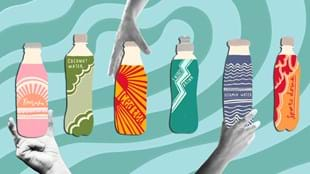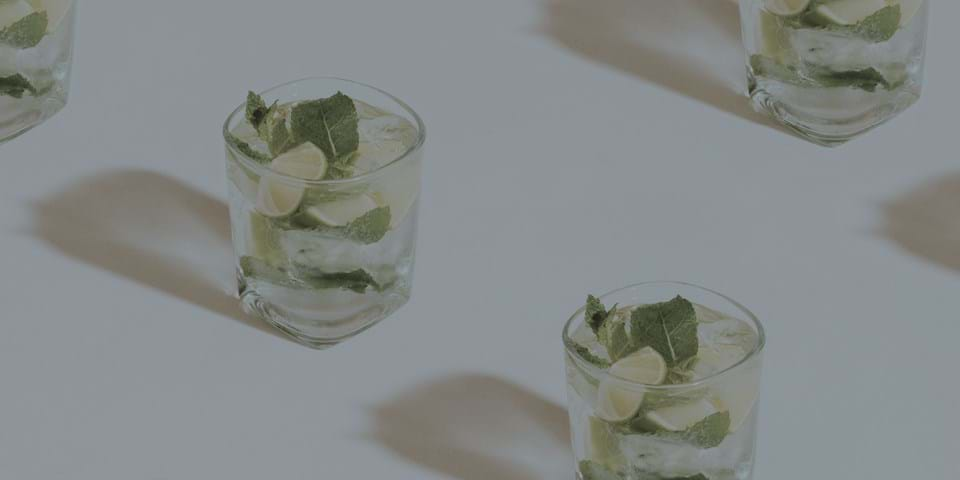When it comes to choosing something to quench our thirst the choices these days go far beyond the simple water or juice. Check the fridge at your local café and you’ll likely find iced tea, kombucha, coconut water, energy drinks, vitamin water… the list goes on.
Choosing what to drink during and after a workout can be tricky, too. Something we may often reach for is a sports drink. It’s for sport, we reason, it must be what we need – right?
Sports drinks are sophisticated products into which drinks companies pour a great deal of research, development and dollars. It’s a high-tech and lucrative business; one 2015 report found 60 percent of US adults drink sports drinks, whether they’re exercising or not.
Sports drinks are formulated for athletes engaged in long, high-intensity training and sports sessions, to allow them to quickly rehydrate and recover.
When athletes are exercising intensely for an hour or more and sweating a lot, rehydration is really important. Sports drinks have been shown to delay fatigue and improve exercise performance in these circumstances. The carbohydrate (in the form of sugar) in these drinks is a quick source of energy and helps the gut absorb water. Electrolytes such as sodium and potassium replace what’s lost in sweat, and sodium helps with rehydration too.
Pro athletes, then, need their hydration options. But what about the rest of us? Is a sports drink what we need after a big gym workout or a tough game of tennis?
The answer, according to the experts, is probably no – and the evidence seems to support this. One study looked at healthy men and compared the effects of water, coconut water and a sports drink after 60 minutes of dehydrating exercise on a treadmill. It found all drinks were equally as effective for rehydration.
A 2012 BMJ article concluded that despite many studies, the evidence for benefit from sports drinks is limited, and the drinks industry has used its marketing to influence advice about dehydration and re-hydration more than the evidence has.
For everyday exercisers, sports drinks may actually be doing more harm than good; giving us calories and sugar we don’t need.
This appears to be the case for kids and teens, with whom sports drinks are popular. A 2014 study found that young people who consumed one or more sports drinks each day gained more weight over a three year period than their peers.
Sports drinks are usually high in sugar and energy – necessary for those elite athletes, but not for an average person – or, for that matter, an average gym goer – who’s in danger of consuming more calories than their workout is burning off. Some sports drinks can contain ten or more teaspoons of added sugar – more than is recommended we consume in a day.
It's easy to over-estimate how much energy we’re burning with exercise. If weight loss is a goal, we’re better off not undoing all the good work we’ve done by reaching for a sports drink.
Beverage companies are now recognizing this issue. They’re releasing “zero calorie” versions of popular sports drinks; these contain the electrolytes of their sugar-containing counterparts, but are made with artificial sweeteners instead of sugar.
But the jury is out on whether these have any advantage over water. Artificial or non-nutritive sweeteners, as they’re known, are well-studied additives which haven’t been shown to be dangerous to health. But there is emerging research that they may have an effect on gut bacteria, altering it in such a way that we’re more inclined to gain weight.
It seems despite all the options, water is still the most recommended post-workout drink. It’s easily accessible and (mostly) free, too.
Some sports nutritionists are also keen on milk as a post-training drink; milk contains both the carbohydrate and protein necessary for muscle repair and recovery after an intense workout. A Canadian dairy industry group recently launched a “Powered by Chocolate Milk” campaign to promote chocolate milk as a sports drink, using prominent athletes as “chocolate milk ambassadors”. Again, probably not necessary for most of us after a gym class. But worth considering after long, intense exercise.
Water is still the most recommended post-workout drink.
And the next frontier in sports drinks development? Nootropic drinks: drinks designed to boost brain health and mental performance. Originally developed for eSports gamers, these types of drinks are likely to cross over into traditional sports, where mental energy and focus can make a real difference to performance. So far the hype outweighs the evidence of benefit, and there’s not been enough research on them to know if there’s any harm. Watch this space.
WORKOUT HYDRATION: WHAT YOU NEED TO KNOW
Despite all the options, water is still the most recommended post-workout drink.
Sports drinks are usually high in sugar and energy – necessary for elite athletes, but not average exercisers.
Some sports drinks contain up to 10 teaspoons of added sugar.
“Zero calorie” sports drinks are made with artificial sweeteners instead of sugar, but the jury is out on whether they are any better than water.
Some recommend milk as a post-training drink; milk contains both the carbohydrate and protein necessary for muscle repair and recovery after an intense workout.
If you want more health and fitness inspiration simply sign up to Fit Planet and get the freshest insights and advice straight to your inbox.








